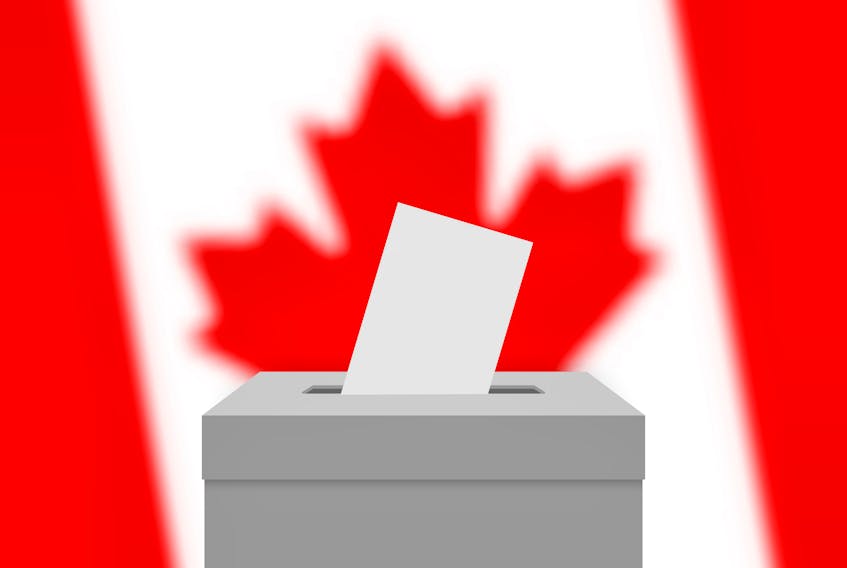You’re a Canadian of voting age. Maybe you’re a college student voting for the first time and you just haven't had time to look at all that the parties are offering. Or maybe you’re a 45-year-old working parent who has always voted for the same candidate, but she or he has decided to throw in the towel.
Or perhaps you're well-versed in Canadian politics, but all this talk about minority governments, coalitions, vote-splitting and strategic voting has left you unsure of the best way to cast your vote. Sit down and relax, this is the article for you. SaltWire sat down with three experts on Canadian politics to discuss how voters can best prepare to cast a ballot, and last-minute things for people to keep in mind as they head to a polling station.
Find out where you stand
Although the leading parties might try to convince you otherwise, Canada has what’s known as a multi-party system, meaning there are a lot of options for voters to choose from. All that information can be overwhelming, even for the most politically minded. And the fact that parties are more interested in winning your vote than educating you on their entire platform makes the task of deciding which party best aligns with your views daunting.

Howard Ramos, a political sociologist and professor at Dalhousie University, recommends taking the time to browse through each party’s platform, which can be downloaded from their websites.
Ramos suggested voters can also pick a few issues that matter to them — such as health care, housing, etc. — and find a reputable non-government organization that focuses specifically on those issues, and read their election literature.
“Usually big organizations that are working on issues will give a comparison of the platforms and that will help (a voter) sort through things,” Ramos said.
If you don’t have time for all that, don’t worry, there are shortcuts. Mainstream news outlets, including saltwire.com, often publish concise primers on the major party platforms and where the parties stand on key issues to help voters get a quick big-picture view. Google “election platform primer” and you’ll get a few hits right away that are good places to start.
As for where not to get your info? Ramos suggests being wary of what you read on social media.
“It’s important to think about what are the sources you're looking at,” he said.
Ignore the horse race (or don’t)
No matter how much you stand behind a federal party leader, unless you live in their riding, you won’t cast a vote for them directly, but for the party’s local candidate.
“Our political system is not a two-party system and we don't vote for the prime minister, so it's important to recognize that when you're voting, you're voting for your (local candidate),” Ramos said.
“A lot of the narrative has been about a horse race and often it's a horse race using national polls, but those are not necessarily going to help you sort through how your vote is going to matter. The first step in wading through this is to not get sucked into those national polls as a metric for your riding or for your vote.”
Though Canadians don’t vote directly for a party leader, with the constant coverage and social media engagement of these political celebrities, and a greater concentration of power resting with the prime minister, it’s impossible (and perhaps inadvisable) to ignore their influence completely.
“It’s not irrational for a voter to carefully study the leaders. ... At the same time, local members of Parliament can exert influence in various ways. Most Atlantic Canadians do not live within walking distance of the seats of power, so the MP becomes the access point. Those voters who give considerable weight to the quality of their local representative are not acting irrationally (either),” said Tom Urbaniak, an associate professor of political science at Cape Breton University.
“I think it's important to ask, in our current system, what matters most to you — your local situation or the broader situation,” Ramos said.
Coalitions and minority governments aren’t scary
If you’ve been following the election news cycle over the past week, chances are you’re sick of the word coalition. With the most recent polling predicting a minority scenario, the pundits are going wild with speculation over what that means and who is willing to work with who.

Minority governments are business as usual for Canada — we had one from 2004 to 2011 — but Urbaniak said a true coalition, where more than one party forms the government and both have seats around the cabinet table, is an unlikely scenario.
“Coalitions are actually not that common in Canada even in minority situations. … We haven't seen that federally since the World War One-era union government,” he said.
“More commonly, one party forms the government and then that party wins confidence votes, sometimes as a result of an agreement with another party.”
Amanda Bittner, a political science professor at Memorial University, said Canadians shouldn’t fear either outcome.
“Many people think coalition governments and minority governments are good because they force governing parties to negotiate and compromise … which majority governments don’t have to do in the same kind of way,” she said.
Functional coalition governments have existed and continue to exist around the world, she said, and minority governments mean opposition parties have more of a say in the bills and laws that get passed and the priorities of government, which some argue is a good thing.
Vote for who you like, not against who you don’t
One tactic parties have taken to using in recent years is to tell voters that by not voting for their party, they’re paving the road to power for another. Warnings about vote splitting and strategic voting (i.e. voting for the party that has the best chance of beating the party you don’t like) have dominated rhetoric during the last few election campaigns.
Ramos warns voters to be wary of that kind of messaging.
“Almost all the parties are going to be trying to persuade people, quite aggressively, in the run-up to the election given how tight the polling is. The two leading parties are going to try and scare people into voting strategically or voting against who they may not like, and the third and fourth parties are trying to convince people to vote for them as well,” he said.
“What's most important at this time is to turn off what the parties are saying and really look at the issues.”
Though the concept gets a lot of air time, Bittner says research shows only between three and 10 per cent of voters vote strategically.
“I think that kind of thinking overcomplicates things for voters. Most of us look at the candidates, look at the parties, think about how we feel and go with our gut,” she said. “It’s really challenging to know who’s doing well in what, and the national polls don't easily map onto regions. My advice to most people is just do what you want to do and don't think about that kind of stuff because you're probably going to get it wrong.”


